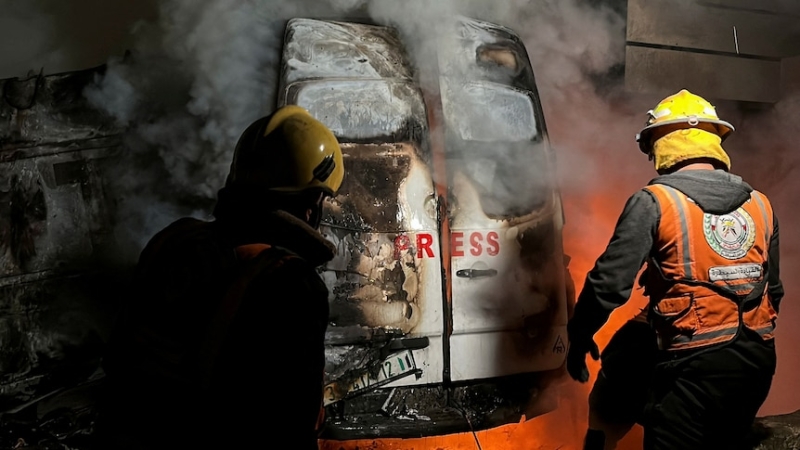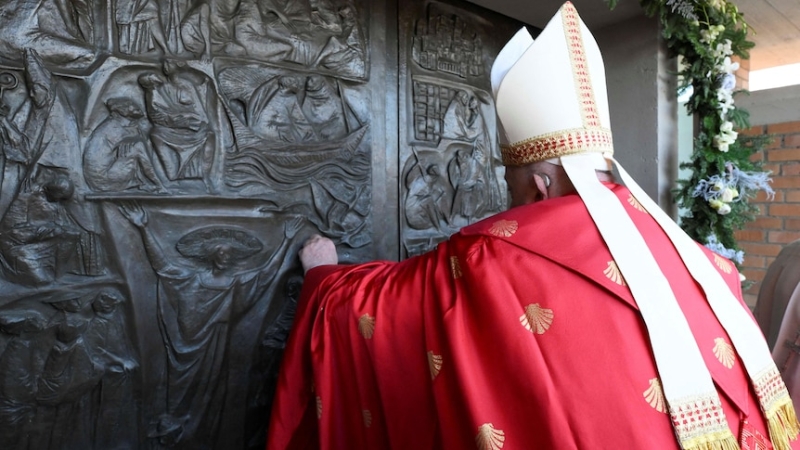Israeli air strikes targeting Houthi rebels in Yemen have hit power stations and ports across the country. (AP: Osamah Abdulrahman)
In short:
Israel has launched a series of air strikes on Yemeni ports, power stations and the airport in the capital Sana’a.
The World Health Organization’s director, Tedros Adhanom Ghebreyesus, said he was at the airport as it was attacked.
What's next?
Israeli Prime Minister Benjamin Netanyahu says strikes against the Houthis will continue 'to cut off this terrorist arm of Iran's evil axis'.
Israel has bombed ports and power stations in Yemen, in retaliation for increased missile and drone attacks from Houthi rebels in recent weeks.
Local media is reporting three people have been killed and 11 others injured in the air strikes, which occurred on Thursday afternoon local time.
The Houthi-run Al Masirah TV said two people were killed in the strikes on the airport and one person was killed in the port hits.
The Israel Defense Forces (IDF) said the Yemeni capital's airport was among the targets.
Shortly after, the director of the World Health Organization Tedros Adhanom Ghebreyesus revealed he was preparing to board a plane at Sana'a International Airport as it "came under aerial bombardment."
"One of our plane's crew members was injured. At least two people were reported killed at the airport," he said in a post on X.
"The air traffic control tower, the departure lounge — just a few metres from where we were — and the runway were damaged."
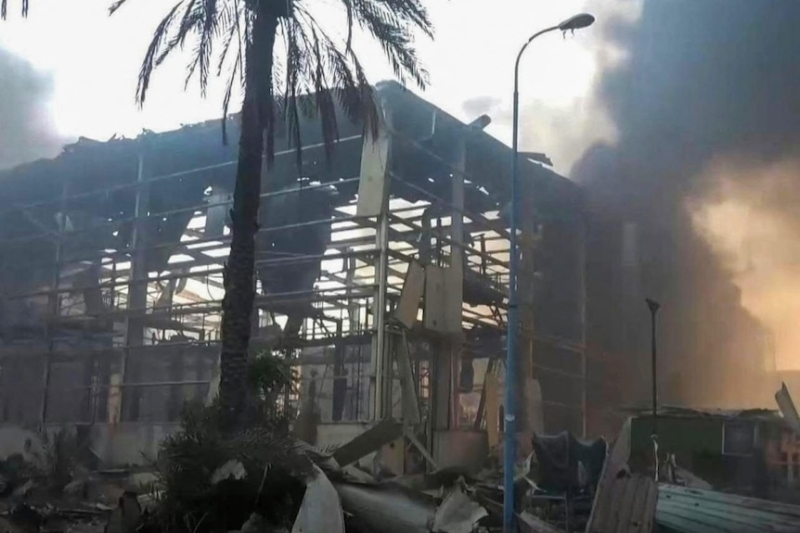
The Israeli Defense Forces said it had hit the Hezyaz and Ras Kanatib power stations, as well as ' the Al-Hudaydah, Salif, and Ras Kanatib ports'. (AFP: Ansarullah Media Centre)
Dr Ghebreyesus said his delegation, in Yemen to try to negotiate the release on United Nations staff detained in the country, would need to wait for the airport to be repaired before leaving.
The IDF said it had hit the Hezyaz and Ras Kanatib power stations, as well as "military infrastructure in the Al-Hudaydah, Salif, and Ras Kanatib ports on the western coast."
"These military targets were used by the Houthi terrorist regime to smuggle Iranian weapons into the region and for the entry of senior Iranian officials," it said in a statement.
"This is a further example of the Houthis' exploitation of civilian infrastructure for military purposes."
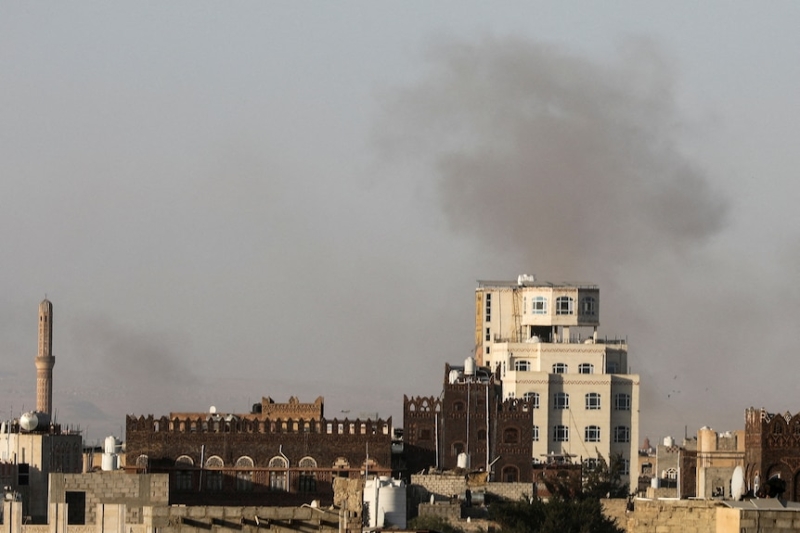
Smoke was seen rising over multiple parts of the Yemeni capital of Sana'a after air strikes landed near to the city's airport. (Reuters: Khaled Abdullah)
The Israeli prime minister's office released a video of Benjamin Netanyahu sitting alongside IDF commanders overseeing the mission.
"We are determined to cut off this terrorist arm of Iran's evil axis," he said.
"We will persist in this until we complete the task."
The head of the Israeli Air Force issued a warning to the Houthis after the strikes, telling his pilots they were "capable of much more."
In recent days, the Houthis have launched a number of missiles and drones at Israel.
Yemen's Houthis claim responsibility for missile strike on Tel Aviv
Photo shows An Israeli emergency officer kneeling over debris on the ground in the dark with a spotlight behind him
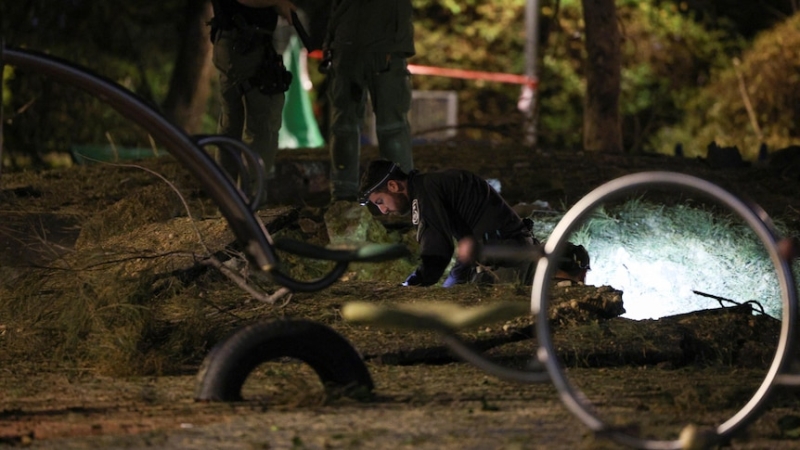
In the early hours of Wednesday morning, warning sirens rang out across the country — including in the largest city Tel Aviv — as a ballistic missile was intercepted.
More than a dozen were injured in the Jaffa area on the weekend as another missile was launched towards Israel.
The Houthis have not responded to the Israeli strikes.
The group continues to fire upon Israel, arguing it is acting in solidarity with the Palestinian people as Israel continues its war in Gaza.
More than a year of Houthi attacks have disrupted international shipping routes, forcing firms to re-route to longer and more expensive journeys that have in turn stoked fears over global inflation.
The UN Security Council is due to meet on Monday over Houthi attacks against Israel, Israel's UN Ambassador Danny Danon said on Wednesday.




